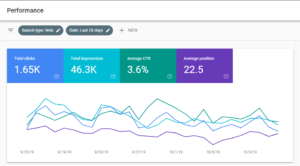How to create an winning SEO campaign for small business?

Planning an SEO campaign effectively is a part of digital marketing strategies with potential benefits for small businesses to generate leads.
And this becomes and forms a lead-generating machine over time.
So if you are wondering how to create an effective SEO campaign for your business and how SEO works.
Get a brief overview right away.
Investing in SEO is alluring because you know when you stand up you win, you know what I mean?
Basically, it’s the free organic search traffic that is the secret sauce for any business to get huge benefits.
But there is a risk in SEO that your efforts may not pay off and you’ll lose precious time spent on a fruitless attempt.
So knowing how to do SEO and finding where to start can become overwhelming for you.
But as long as you continue to work on the right track you actually move up.
And gradually it will become comfortable for you to deal with various SEO parts that are involved in an SEO Campaign.
However many times small business owners and marketers set out to demystify SEO because nothing happens to what “experts” tell them as secret ingredients to success.
So with limited time and budget, you need to know where to focus your SEO efforts to get the best results.
Understanding SEO Campaign
SEO Campaign is otherwise known as an SEO marketing campaign.
An SEO campaign is an effort to optimize a page or website to improve your site ranking on Google.
Keyword research, SEO analysis, on-page optimization, content analysis, link building, and many other activities form the component of an SEO campaign.
The right keywords support the power of an SEO campaign.
So to truly understand SEO campaigns small businesses should spend more time understanding business keywords.
Without understanding the potential of a keyword that makes it relevant for your business, an SEO campaign can’t be profitable.
So the very first step in SEO for Small Business is to choose the right target keywords for your products and services.
Therefore it’s important to learn to conduct proper keyword research to make your SEO goals a success.
To make the most out of your SEO campaign perform an SEO Audit and ensure that your campaign focus on
- Selecting Keywords that are not too competitive
- Check Search Volume that is neither too low nor too competitive
- Make use of Long-Tail Keywords
- Cover up LSI Keywords
- Check Keyword Placements in Title, URL, Heading, Sub Heading, and Description
- Keep an eye on Google/Bing Webmaster Tool
- Use Google/Bing Analytics to measure your goals & KPIs

How to Make SEO Campaign Work for your Business?
There are several articles on the internet that speaks of the underlying 200 ranking factors that underscore an SEO campaign
So it’s easy to get distracted, however, you don’t need to focus on all of them at once.
Prioritizing is the key to SEO success, so start with your biggest problem areas first.
In general, there are four biggest problems that keep your website away from ranking in SERP and driving organic SEO traffic.
So let us focus on the major problems below with solutions and best practices to resolve 4 core SEO issues.
1. You don’t Optimize your Content for the SEO campaign
The first problem is, your content isn’t optimized for the SEO campaign.
This usually means that your content has not been optimized intentionally for an optimal keyword phrase for each piece of content.
So many of us set out on a race to crank out a bunch of content many a time in a month
Focusing on quantity and frequency is great unless you are optimizing your content for Value Keywords.
But usually choosing keywords for SEO and following simple SEO best practices often gets you left by the wayside.
So if you feel like you have been spinning around your wheels
And getting nowhere with no organic traffic to be seen for miles, chances are that you’ve fallen victim to the strategy.
And the good news is you can fix this problem in two simple ways
- Find traffic and the sales-generating keyword for your content
- Include those keywords in your content in all appropriate places
Step 1: Keyword Research
When it comes to keyword research for an SEO campaign, there are several SEO tools that play a great role in finding your niche keywords for your business.
The key to finding great keyword opportunities is understanding your site’s strengths. Some sites can compete for more competitive keywords over others.
So knowing the benchmark for how much competition you can take on and still get results is really important to the success of your SEO Campaign.
Aiming too high will most likely get you nowhere.
So aiming at the right competition level will likely get you a healthy share of voice for that keyword.
And the more content you create, thus capturing your fair share of voice, will add incremental traffic to the whole SEO campaign that will snowball over time.
However, just creating content won’t do much.
You also have to build your site’s competitive power by attracting inbound links from high-domain authority sources.
By doing so you will be able to target higher competition keywords opening your doors to many more traffic sources.
So with a little keyword research and some minor tweaks to your existing content, you can still start driving a few SEO results by looking for keyword opportunities that are already very similar to your existing content.
However, if you are writing a fresh article doing research to find keywords for which your site has a good chance of ranking is worth the extra time it takes.
Because it means you are writing better-quality content for more organic traffic.
Step 2: On-Page Optimization
Now that you know what keyword phrase to target, it’s time to start the SEO content writing phase of the program.
While preparing content writing for SEO, make sure you include not only a single keyword but cluster keywords that represent the same meaning.
And include those keywords a couple of times in all prime places that help search engines know what your content is all about without repeating the keywords too much.
The places that you should consider using keywords consist of the URL, Title Tag, Heading Tags, Image Alt Tags, Image URL, and the Body.
If you are using a CMS such as WordPress and there are numerous SEO plugins that will help you diligently in this case.
You can also use similar and related keywords that appear at the bottom SERP of Google Search.
Include a handful of those related phrases throughout your campaign to reinforce the topic in your content and link to your content from other pages on your site using the target keyword in your anchor text.
2. You have Technical SEO Issues on your website
The second major problem to focus on in your SEO campaign is to eradicate the technical issues in other words, these are the SEO bugs that keep your website away from ranking.
So what are those technical SEO issues?
There are several common problems that you may encounter during the phase of your Technical SEO evaluation.
Issues such as No HTTPS Security, Slow Page Speed, and Uploading, Virus Issues, Hacked Websites, Server Problems, Broken Links, Messy URLs, and mobile optimization are a few.
It can happen to anyone, but it’s hard to know without an SEO audit the quality of your site.
Therefore ensure that your site is set up in a way that complies with search engine crawling requirements.
So with a lot of moving parts to SEO, it’s possible for anything to fail and if you are not a developer you can’t easily figure out the technical problems and troubleshoot what’s going on.
So how do you fix this issue?
You have to run a site audit to discover the problem areas that exist on your website.
Fixing technical issues on your site is fairly a simple two-step process.
- Run a site audit
- Hire a developer to address any red flag it unveils
So how do you do that? There are several free and paid tools for performing the complete SEO analysis for your website.
3. You have a Low Domain authority
The third important problem to focus on in the SEO campaign is having a low domain authority on your website.
In the simplest terms, a low domain authority website means lesser inbound links to your website.
So why is low domain authority a problem?
Search engines want to deliver high-quality results for their users’ search queries.
Because that is what keeps their users coming back again the next time they have a search to perform.
Inbound links to your website are like a vote of confidence or reference that is given to your website by another site owner or content creator that your content is a quality resource.
This is another way of thinking about like how many customers have voted for your products and services and that you are an expert in your field.
So fewer inbound links translate to a lack of confidence in your site and it hampers ranking on search engines.
How to fix this issue? The simplest answer is to create content for your business, products, and services and build links to it.
Now content creation is not easy as you might think nor do building links.
It means you have to build amazing and unique content that other content creators find useful enough to link to you.
So often marketers email on their behalf to bloggers, journalists, and influencers to build links asking for a link.
But that won’t take you far because it is not happening willingly.
On the other hand, if your content is truly aligned with your audience’s interest, content creators will have a good reason to link to you.
So once link building happens willingly on your site.
It becomes a favorable link-building approach for search engines to truly consider your content to rank higher.
An Approach to Link Building & SEO for Enterprises
Content creators such as bloggers and journalists have a constant finger on the pulse of their audience.
But it doesn’t mean that you too must have that same intuitive sense.
So validate your content demand before you create it by doing a little keyword research, this will help you ensure that your content will appeal to influencers.
And consider what you want to aim for when coming up with link-worthy content ideas.
Once you have created and optimized content for the popular keywords, look at the sites that are driving traffic for that keyword.
These are now the prime targets for outreach, assuming they aren’t your competitors.
Because their sites are clearly relevant to the topic that you wrote about.
So if they are showing up for that term they might have an interest in your content.
And other sites that link to those mentioned sites that are driving traffic for that same SEO keyword are also a prime target for you to outreach.
This shows they have an interest in linking to content on that topic and perhaps your content will be compelling to them too.
Now, what is the relationship between Link Building and SEO? Are Links a Google Ranking Factor?
Absolutely No, but Link Building is known as the root of SEO because Links determine how well your pages will rank on Google.
4. You aren’t monitoring your SEO campaign
The fourth major problem is that you are not measuring your SEO campaign.
Although you have access to Google and Bing Analytics to look at the total organic traffic to your site this is not enough to measure your campaign the right way.
Getting the results from SEO is an incremental addition to traffic from each piece of content.
The search traffic that a single piece of SEO content attracts is often fairly consistent and sustainable.
This means it usually continues to drive traffic month after month well beyond its initial publication date.
And as you add more content each piece of your content will attract additional traffic adding to an increase in your overall volume.
So the impact is something that is built over time as you create and publish more content.
It is highly unlikely that you will see a huge spike in your organic traffic from only a couple of pieces of content, especially if your site’s competitive power limits the keyword you can rank for to ones that are low competition and has lesser popularity.
So how can you fix this issue?
Firstly, you really need to know whether the piece of content that you have published is successful in driving organic traffic.
And what will be the effect of your SEO Campaign from the keyword you have chosen to optimize your content?
Secondly, you can do this by creating a dashboard of key KPIs for organic search.
Step 1: Track the effectiveness of each piece of content
To track the effectiveness of each piece of content.
You have to measure the results that you set out to drive traffic to a piece of content for a specific keyword.
Below are the key KPIs to measure whether or not you are successfully driving traffic to your content from your target keyword.
- Position of that page in SERP for the targeted keyword.
- Organize traffic to that page for the targeted keyword.
- Total organic traffic to that page for any selected keyword.
- Total conversations by organic traffic to your page
- The conversion rate of organic traffic to a page.
Step 2: Track aggregate results of all SEO content
Once you have got a clear signal that your pointed efforts are indeed coming to fruition.
You can start to take a look at the cumulative effect of those efforts.
Some of the high-level KPIs that you should be measuring for your SEO campaign are:
- All organic traffic to a site
- Organic traffic by non-branded keywords
- All organic traffic by branded keywords
- All conversions from organic traffic
- Conversions from organic traffic by non-branded keywords
- Conversions from organic traffic by branded keywords
Summing it up:
If your site has a fairly low competitive domain authority as most websites starting out with SEO do.
The keywords that you should target to make your SEO campaign successful should be fairly focused on your base keywords.
A business should also focus on LSI keywords that are usually low on the popularity scale.
But LSI keywords add great value to support your overall SEO campaigns.
This means that each piece of content you add to your website using LSI keywords will add a little bit more traffic.
Initially, you won’t see a large spike in overall organic traffic.
But if you keep the flywheel moving by creating content on a regular basis and linking your content internally.
You will see results that will add up and multiply over time as your site’s competitive strength increases.
Keep track of your page rank with respect to your base keywords and check the results repeatedly.
Over time you will see some results and you would come to know if you are on the right track.
You don’t have to do everything all at once.
However, you need daily incremental changes that should keep going in any SEO campaign to catch up with the rank you want.
Prioritize your efforts based on your biggest obstacles and measure the results of those efforts.
Make adjustments and tweaks to your SEO strategy according to what’s working and what’s not and repeat.



